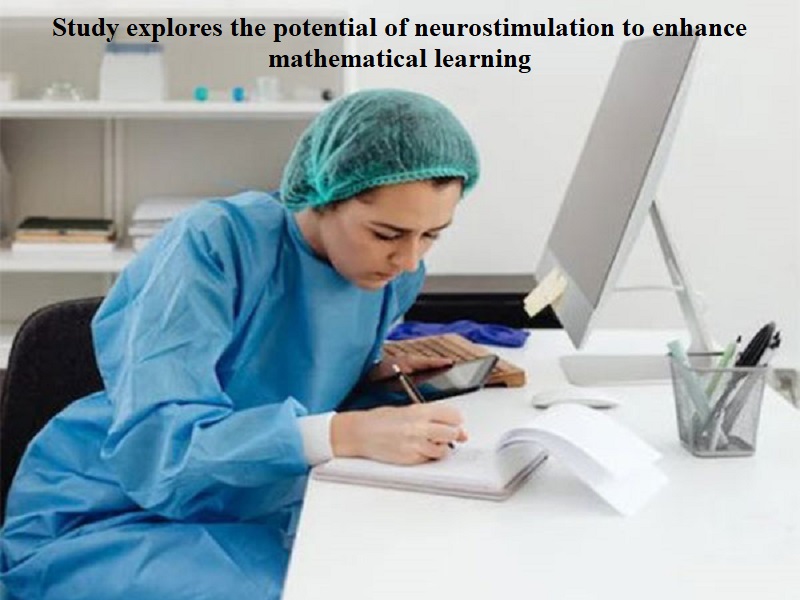
A collaborative research effort involving the universities of Surrey and Oxford, Loughborough University, and Radboud University in the Netherlands has delved into the potential of neurostimulation to enhance mathematical learning. The specific method used was high-frequency transcranial random noise stimulation (tRNS), designed to excite specific brain regions and enhance mathematical skills in participants. The study, led by Professor Roi Cohen Kadosh from the University of Surrey, has uncovered the intriguing effects of brain stimulation on mathematical aptitude.
This cutting-edge technique, neurostimulation, involves delivering mild electrical currents via scalp electrodes. The primary aim of this investigation was to ascertain whether tRNS could amplify brain activity associated with learning, ultimately improving mathematical abilities. Professor Cohen Kadosh, a cognitive neuroscience expert, highlighted the pivotal role of learning in human life and the potential of neurostimulation to foster knowledge acquisition and skill development, as reported by the Independent.
The study recruited a total of 102 individuals, each subjected to a thorough assessment of their mathematical proficiency before embarking on the experiment. The participants were divided into four groups: a standard learning group, an “overlearning” group where participants practiced mathematical tasks beyond mastery levels, and two groups that received tRNS during the study. The remaining two groups underwent a placebo treatment, simulating the stimulation without significant electrical currents. Brain activity was monitored using electroencephalogram (EEG) recordings at both the study’s commencement and conclusion.
The study’s results unveiled an intriguing correlation between initial brain “excitability” related to mathematics and the effects of tRNS. Participants with lower initial brain excitability for mathematical tasks showed significant enhancements in their abilities following stimulation. Conversely, those who initially performed well on math assessments or were part of the placebo groups witnessed no notable changes. These findings underscore the potential of tailored neurostimulation approaches to improve learning outcomes and provide insights into the ideal timing and duration for employing this technique.
Dr. Nienke van Bueren, who led the study under the guidance of Professor Cohen Kadosh, emphasized the significance of these findings. The research suggests that individuals with lower brain excitability for mathematics may be more receptive to electrical noise stimulation, leading to improved learning outcomes. Conversely, individuals with high brain excitability may not reap similar benefits. This research opens the door to a more personalized approach to learning and offers insights into the optimal application of neurostimulation techniques.

Post Your Comments